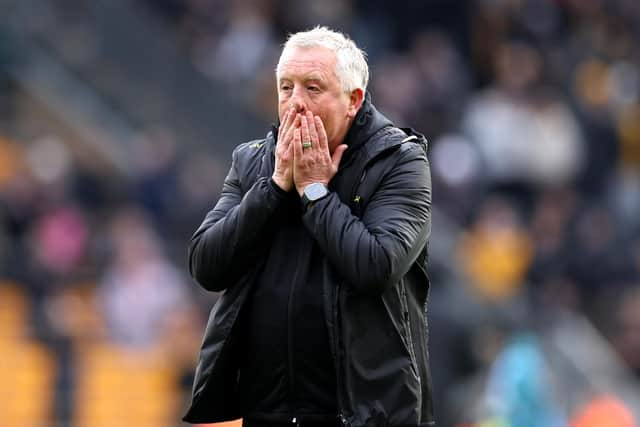Sheffield United in need of a post-Premier League rebuild believes former defender turned Barnsley FC boss
Now manager of League One Barnsley, Collins was an emerging defender when part of the Sunderland squad relegated from the Premier League with a then-record low points tally of 15 in 2005-06.
But he also played an important role in kick-starting a revival which saw them win the Championship the following year and set up a 10-year stint in the Premier League, the Wearside club's longest in top-flight football since the 1950s.
Advertisement
Hide AdAdvertisement
Hide AdWith just 14 points from their opening 28 matches, Sheffield United are having a similarly miserable campaign to the one Collins was part of – albeit only for a couple of FA Cup games between loan spells with Hartlepool United and the Blades.


This will be their second relegation from the Premier League in three years. Last time they bounced back by using parachute payments to largely keep the squad intact but the Scot does not think that will be an option this time with too many having "climbed the mountain" once too often.
"When they last came down (in 2020-21 then-manager) Paul Heckingbottom did a phenomenal job and almost over-achieved, he was the victim of his own success," argues Collins, who made 177 league appearances for the South Yorkshire club in a second, permanent, stint from 2011 to 2016.
"Had he got them into the play-offs and not got promoted (as happened the previous season) he'd probably still be in a job.
"There's two ways to get promoted out of the Championship.
Advertisement
Hide AdAdvertisement
Hide Ad

"You have to have a hunger, maybe a team that's not experienced it before, which could mean wholesale changes. The other way, as the likes of Leicester have done, is to keep hold of a lot of your quality and ultimately you're just too strong for that division.
"I suspect Sheffield United might need to be the first. Watching them from the side they look like they need to rejuvenate that squad and go again because I think they've probably suffered from the fact their players have climbed the mountain, gone down and climbed it again and now it's just a little too much for them and they need fresh blood."
The core of last season's promotion-winning squad was the spine of the team Chris Wilder led to ninth in the Premier League in 2019-20.
Fortunately for the Blades, Wilder seems to be of the same opinion as Collins, saying the run-in could see far more game-time for youngsters such as Andre Brooks, Will Osula and Oliver Arblaster.
Advertisement
Hide AdAdvertisement
Hide AdThe worry when any team goes down with a pitiful points tally – and Derby County broke Sunderland's record when they were relegated with just 11 in 2007-08 – is that there is a "hangover" the following season.
Collins certainly experienced that at the Stadium of Light, but it was quickly shifted.
"We lost our first four games in the league, then went to Bury who were bottom of League Two and got beaten 2-0 (in the League Cup) and I'm thinking, 'We're never going to win a game again!'" says Collins, his recall of the details spot on.
"Roy Keane came in and straight away everyone's on their toes – we won against West Brom, we won against Derby away, we went to Elland Road and won and he signed a lot of top players (on August's deadline day, after the first of those wins).
Advertisement
Hide AdAdvertisement
Hide Ad"It didn't happen immediately but in January it just took off (going unbeaten in the first 17 league games of 2007) and they got promoted.
"I think that's the kind of thing maybe a club needs at that moment of time, whether it's a player or a manager, you need a spark. Roy gave the club a spark."
Collins use of the word "they" tells a story. By the time things did take off he had been transferred to Wolverhampton Wanderers – but not before making his mark.
The losing start to the season ended with Keane's appointment, but he was watching in the stands as reluctant caretaker-manager/chairman Niall Quinn took the reins one last time. Collins scored in a 2-0 win and played 90 minutes as Sunderland kept a clean sheet at Leeds in Keane's second match, a 3-0 victory.
Advertisement
Hide AdAdvertisement
Hide Ad"That was a great day," Collins says of the first of those games. "Roy Keane was one of my heroes growing up and when he came in I thought, 'He won't know me but he'll know a lot of our players' – he'd have played with Kenny Cunningham and some of the other bigger names.
"I felt like I'd have to make an impression.
"I played against John Hartson that day and did well, then got the goal. It was a good day to get that win after a bad start to the season.
"It was just a good thing to see how quickly things can change. Nothing's done until it's done in the Football League."